Energy
Tackling waste heat, reducing the amount of energy we use, making our heating systems more efficient and increasing renewable energy generation not only helps us reduce our carbon emissions but can lower our bills.
As a local authority we have targets to work on our buildings and assets to reduce our carbon footprint and generate enough renewable energy to run them at net zero. But to reach net zero in the borough by 2050 our core role must be to support our residents and businesses and ensure everyone can benefit from low carbon living.
We recognise change is difficult and upfront costs can sometimes be prohibitive, but we want to engage with our communities to better understand barriers, provide information, guidance and practical support.
What are Ashford Borough Council doing?
Planning
We are supporting the development of low carbon buildings through guidance and our next Local Plan. Currently in development, our next Local Plan will have a key role in supporting climate action through revised policies around renewable energy, green infrastructure and building standards.
Infrastructure
We are actively working with the Department for Energy Security and Net Zero (DESNZ) to understand the possibility of a district heat network in Ashford. This is a system to reduce reliance on fossil fuels to heat our buildings and hot water and move to using waste heat from industrial processes and heat pumps to deliver our needs instead. We are currently exploring options to develop a decentralised heating strategy for the town centre.
We are working closely with partners at UK Power Networks (UKPN) who manage and operate our energy network in the South East to help ensure we have enough energy and connections for the increased energy use we will require as our homes, businesses and transport electrify in the coming decades.
Social Housing
Targeted strategy in place to insulate our housing stock in most need, to reduce energy use and wasted heat and improve comfort. We have successfully won funding from the Social Housing Decarbonisations Fund to work on over 600 homes in the borough.
Decarbonise
Government funding has been secured to move the Stour Centre to renewables, with air source heat pumps now generating 90% of heating instead of gas. Tenterden Leisure Centre soon to follow suit with a 70% reduction in utility consumption.
All our other council buildings are being assessed for energy measures and renewable energy generation and we are exploring how our key sites can be some of the first buildings linked to our heat networks. Projects include exploring solar panel car ports at the Stour Centre and ground source heating options for the Julie Rose Stadium which could produce enough heat to sell to neighbouring buildings.
Funding and grants
We are always actively exploring ways we can support residents access green energy initiatives and grants - these include options for improving insulation, boiler upgrades, EV charge points for businesses and solar installations. You can find more information on our funding and grants webpage within the climate section.
Community energy projects
Our new work plan for 2024-2026 outlines our ambition to work with and support local groups setting up community led energy projects. These can be schemes of any scale, wholly or partially owned and run by local communities. The scope is very wide and can cover projects that generate energy for local use or sale, projects that make community assets more efficient or greener, even small scale community run or joint venture heat networks.
The core aim is for communities to have the power to make a difference and keep the financial benefits from the transition to renewables whether that is through reduced energy bills or invome to reinvest.
The below video from Community Energy England gives a good introduction.
We have recently commissioned a Local Area Energy Plan that gives us a wealth of data about the energy requirements and energy generation opportunities of all the buildings in the borough. This data would be very useful to groups to evidence energy needs and develop a business case for a defined area. This is new for us too but we are keen to learn with any groups who are interested in exploring this further and offer the support we can. whether that is signposting to helpful partners, providing data or our bid writing expertise. Please email our Climate Action Team if you would like to discuss a specific project further.
How can you take action?
+ Use less energy
We’ve compiled tips for you to try at home to keep the warmth where you need it, plus ways to use less energy and save money on your bills.
- Keep furniture away from radiators – get the maximum benefit from your heating by not blocking them.
- Use your thermostat – set your thermostat to the lowest comfortable temperature, which for most is between 18 to 21 degrees.
- Keep the heat in – closing doors and using draught excluders reduces the amount of heating moving into colder areas of your home, such as the hall. If there’s a gap at the bottom of the door block it with a draught excluder – you can make one stuffed with used plastic bags or bits of spare material.
- Careful with your washing – wash on a 30-degree cycle and try to reduce your usage by one run per week for a year. This can save around £34 a year.
- Switch off standby – almost all electrical appliances can be turned off at the plug without upsetting their programming. This can save around £65 per year.
- Spend less time in the shower – by keeping to a 4-minute shower time, this can save around £95 a year
- Buy the most energy efficient applicances you can afford.
+ Reduce heat loss in your home with small adjustments
Draught proofing
Draughts happen where there are unwanted gaps in the construction of your home, and where openings are left uncovered. You should block up any that let cold air in and warm air out.
Insulating your hot water pipes
Pipe insulation consists of a foam tube that covers the exposed pipes between your hot water cylinder and boiler, reducing the amount of heat lost and therefore keeping your water hotter for longer.
Bleed your radiators
Yearly bleeding of radiators will reduce potential cold spots throughout your home and make your radiators more effective.
Top up your hot water cylinder insulation
Nearly all UK hot water cylinders have some insulation. However, those with hot water tank jackets under 25mm thick could benefit from top-up insulation to an 80mm jacket.
+ Reduce heat loss with home improvements
Most of the heat lost is from the roof, windows, walls and unwanted gaps. So, by tackling the amount of heat that is lost through these sources can dramatically reduce your carbon footprint and of course those energy bills.
A number of grants are available to improve the fabric of our buildings and the efficiency of our heating systems.
- Sustainable Warmth is a new Government grant scheme designed to fund energy-efficiency upgrades to residents who are most likely to be impacted by the high cost of rising bills. These improvements will help residents to use less energy and spend less on their energy bills. Please find advice on eligibility on our website.
- ECO (Energy Companies Obligation) grants or Affordable Warmth – Additionally the government has a range of grants to incentivise home improvements for a wider range of income levels – further details can be found on the government grants website.
+ Consider switching to renewable and low carbon energy generation
As well as making our homes work more efficiently moving to a low carbon source of heating your home and hot water will impact your carbon footprint. The energy saving trust is a good starting point to understand the different options and what might be best for you eg. Solar or Heat Pumps.
Further information
Simple Energy Advice is a government-endorsed service which gives independent and impartial advice on improving your home’s efficiency and keeping warm.
For a free shower timer and other water saving devices visit the Save Water Save Money website.






